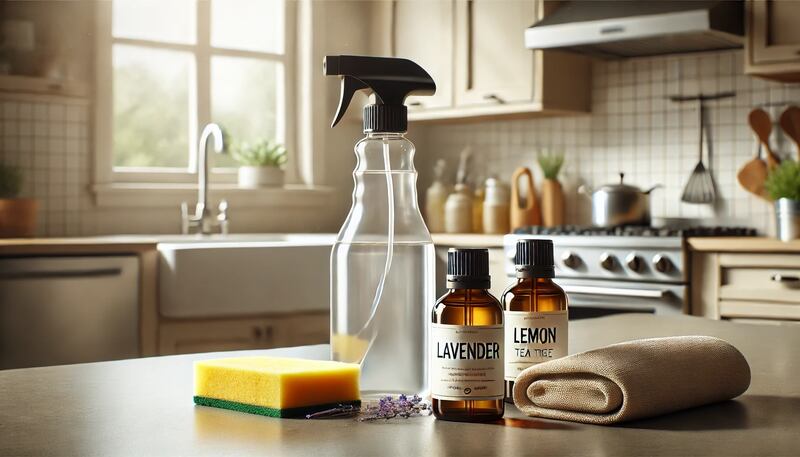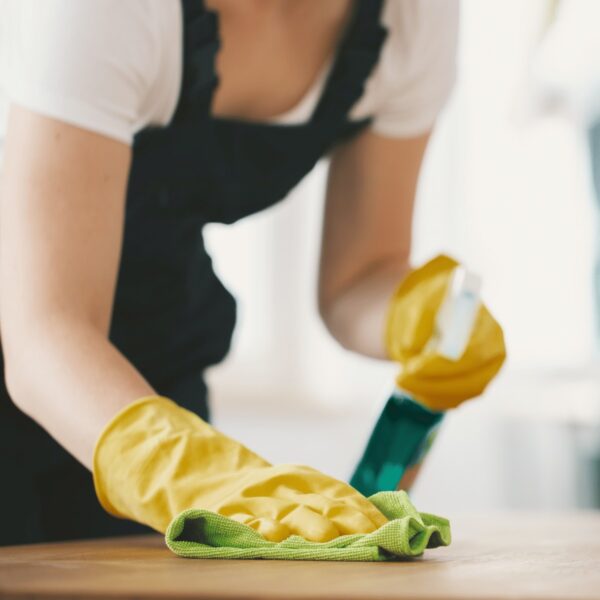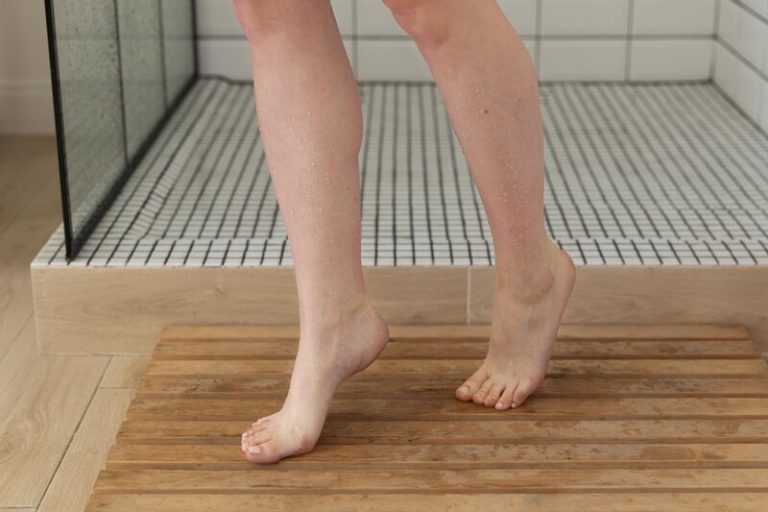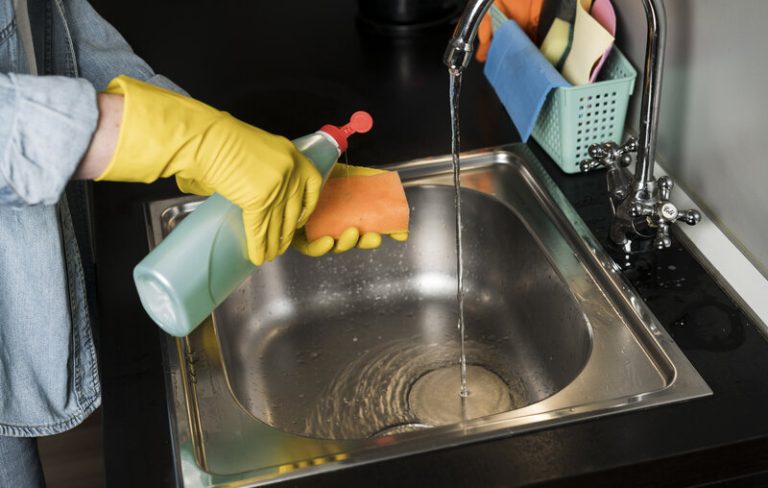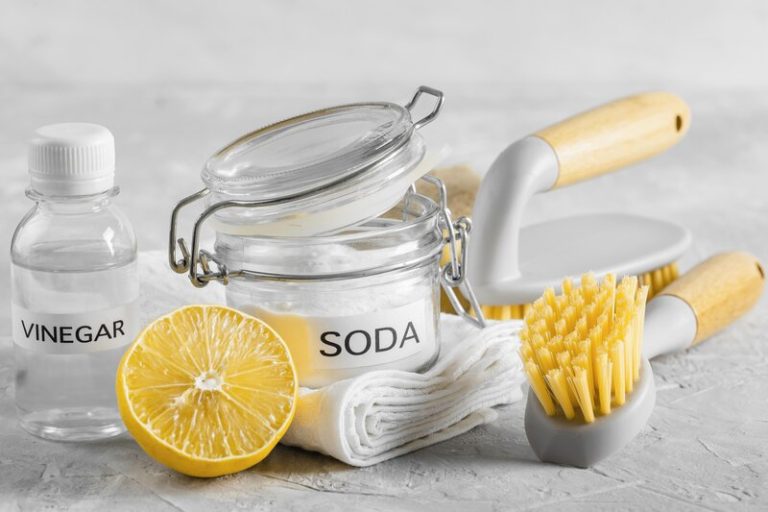Can you use essential oils for cleaning? The answer is yes! These natural oils have gained popularity not only for their pleasant scents but also for their cleaning properties. Many people are turning to essential oils to enhance their home cleaning routine, adding a refreshing and effective touch.
In this article, we explore how essential oils for cleaning can help tackle dirt and grime while leaving your home smelling fresh. From antibacterial benefits to natural deodorizing effects, essential oils offer a chemical-free alternative to traditional cleaning products.
Discover practical tips on using essential oils safely and effectively, and learn which oils are best for keeping your home spotless and inviting!
Can You Use Essential Oils for Cleaning?
Absolutely! Essential oils for cleaning have gained popularity as an effective and natural alternative to chemical cleaning products. These oils not only provide delightful aromas but also possess potent antibacterial and antiviral properties that effectively sanitize various surfaces in your home.
Many households are now incorporating essential oils like Tea Tree and Lavender into their cleaning routines, making it easier to maintain a clean, healthy, and inviting living environment while avoiding harmful chemicals.
a. What Makes Essential Oils Suitable for Cleaning?
Essential oils are particularly suitable for cleaning due to their strong antibacterial and antiviral properties, which help eliminate harmful bacteria and germs from surfaces. Oils such as Lemon and Eucalyptus can efficiently break down grime while delivering a refreshing scent, making them popular choices for natural cleaning solutions.
By using essential oils for cleaning, homeowners can achieve a powerful yet non-toxic cleaning experience that’s safe for families and pets. Notably, Lemon oil acts as a natural degreaser, making it ideal for kitchens, while Lavender oil sanitizes linens, adding freshness throughout the home.
b. Are Essential Oils Safe for Cleaning?
Essential oils are generally safe for cleaning when used correctly, as they are non-toxic and derived from natural sources. However, it’s important to understand proper usage and be aware of potential skin sensitivities related to specific oils, such as Cinnamon or Peppermint, which may require caution when used in concentrated forms.
To ensure a safe cleaning experience, always dilute essential oils before application—typically, 5-10 drops of oil per 60 millilitres of a carrier liquid like water or vinegar is recommended. Additionally, performing patch tests on the skin and using oils in well-ventilated areas can enhance safety and comfort during use. By following these guidelines, you can safely enjoy the multifunctional benefits of essential oils in your cleaning routines.
Tips and Tricks for Using Essential Oils for Cleaning
Incorporating essential oils into your cleaning routine can be beneficial and effective, and there are some tips and tricks to maximise their benefits, some of which are:
a. Dilute Essential Oils Properly
Proper dilution of essential oils is vital for effective and safe cleaning. Oils like Cinnamon or Pine are potent, so mixing a few drops with a carrier liquid, such as water or vinegar, helps protect surfaces and skin from adverse reactions. For general household cleaning, use a ratio of 1-2 drops of essential oil per ounce of carrier liquid for optimal results.
For disinfection, consider a stronger concentration of 3-6 drops per ounce. Remember to perform patch tests on small areas and ensure good ventilation while using these mixtures to maximize cleaning efficacy and safety.
b. Use the Right Essential Oils for the Job
Choosing the right essential oils for cleaning tasks can significantly enhance effectiveness. For instance, Lemon essential oil is excellent for cutting through grease, while Tea Tree oil’s antibacterial properties make it perfect for disinfecting surfaces. Understanding the unique benefits of each oil allows you to create a personalised cleaning routine that meets your specific needs.
Incorporating various essential oils into your cleaning practices can elevate your mood and improve your home’s cleanliness. Lavender oil is ideal for freshening linens, while Peppermint oil can repel pests. With the right blends, cleaning transforms into a delightful experience, leaving your space sparkling and inviting.
c. Use Essential Oils to Create Natural Cleaning Solutions
Creating natural cleaning solutions with essential oils allows for a tailored approach to home cleaning, ensuring you know exactly what’s in your products. Combining oils like Lavender, Eucalyptus, and Peppermint with vinegar or bicarbonate of soda results in effective cleaners that not only smell divine but also promote health benefits.
These mixtures can transform mundane chores into enjoyable activities. For a simple multi-surface cleaner, blend 1 cup of water with 1/2 cup of vinegar and 10 drops of your favourite essential oil. This way, you can maintain a clean environment free from harsh chemicals while enhancing air quality and overall well-being.
d. Combine Essential Oils with Other Cleaning Agents
Combining essential oils with other natural cleaning agents amplifies their effectiveness while ensuring a safe environment. For example, mixing Eucalyptus oil with vinegar creates a powerful disinfectant that leaves a refreshing aroma. This synergy helps tackle tough stains and odors without relying on harsh chemicals.
By experimenting with various combinations, you can tailor solutions to your cleaning needs. Lemon oil mixed with bicarbonate of soda acts as a potent scrub, while Tea Tree oil with water serves as a natural disinfectant for high-touch surfaces. These mixtures enhance cleaning potential while promoting a healthier living space.
e. Know Which Surfaces to Avoid Using Essential Oils On
While essential oils offer many cleaning benefits, it’s essential to know which surfaces to avoid to prevent damage. Oils like Cinnamon and Peppermint can etch or discolour porous surfaces and natural stone. Being mindful of surface compatibility ensures you can safely enjoy the advantages of essential oils for cleaning.
Common surfaces to avoid include glass, which can streak; plastic, which may fade; and wood, which can warp or stain. Instead, use essential oils on safe, non-reactive areas like metal fixtures or sealed countertops. Following these guidelines helps maintain your surfaces’ integrity while enjoying the aromatic benefits of essential oils.
Common Essential Oils Used for Cleaning
Many essential oils are favoured for their unique properties and pleasant fragrance, so they are thought to support home cleaning activities. However, make sure to avoid common mistakes, such as:
a. Lemon Essential Oil
Lemon essential oil is celebrated for its fresh scent and powerful antibacterial properties, making it ideal for various cleaning tasks. It excels in cutting through grease and grime, especially in kitchens, while also freshening the air. With its effectiveness in stain removal and deodorising laundry, it’s clear why lemon essential oil is a favourite among those exploring essential oils for cleaning.
b. Tea Tree Essential Oil
Renowned for its potent antibacterial properties, Tea Tree essential oil is a must-have for eco-friendly cleaning. It effectively disinfects surfaces and tackles mould, making it perfect for damp areas. By incorporating Tea Tree oil into homemade cleaners, you not only ensure a healthier environment but also enjoy its refreshing aroma, showcasing how essential oils for cleaning can be both effective and pleasant.
c. Lavender Essential Oil
Lavender essential oil is known for its calming aroma and antibacterial benefits, making it an excellent cleaning companion. It freshens linens and purifies the air while reducing stress. Using Lavender essential oil enhances your cleaning routine, providing both cleanliness and a soothing fragrance, demonstrating its versatility as an essential oil for cleaning.
d. Peppermint Essential Oil
Peppermint essential oil is recognised for its invigorating scent and strong antibacterial properties. It effectively cleans surfaces and uplifts the mood, transforming chores into a more enjoyable experience. By incorporating peppermint oil into your cleaning practices, you can achieve high hygiene standards while showcasing that you can use essential oils for cleaning in creative ways.
e. Eucalyptus Essential Oil
Eucalyptus essential oil stands out for its disinfectant properties and fresh scent, making it perfect for natural cleaning solutions. It combats harmful bacteria and improves indoor air quality, enhancing your home environment. By using eucalyptus oil in cleaners or diffusers, you promote a pristine space while enjoying its numerous health benefits, proving its value as an essential oil for cleaning.
In exploring can you use essential oils for cleaning, we’ve discovered that these natural wonders can be effective allies in maintaining a fresh and clean home. With their antibacterial properties and delightful scents, essential oils for cleaning offer a wonderful alternative to harsh chemicals, transforming your cleaning routine into a more pleasant experience.
However, if you prefer a thorough and worry-free clean, consider relying on the professionals at TEKA Cleaning. Our residential cleaning services are designed to provide a deep clean that leaves your home spotless, rejuvenated, and smelling fantastic. By entrusting your cleaning needs to us, you can enjoy the benefits of a pristine living space without the hassle of doing it yourself.
Don’t let the stress of cleaning take away your precious time—call TEKA Cleaning today at 01223 751 544 to schedule your service. Experience the difference of professional cleaning and discover how easy it is to maintain a beautiful home. Let us take care of the hard work, so you can relax and enjoy your fresh, inviting space!
Read also:







